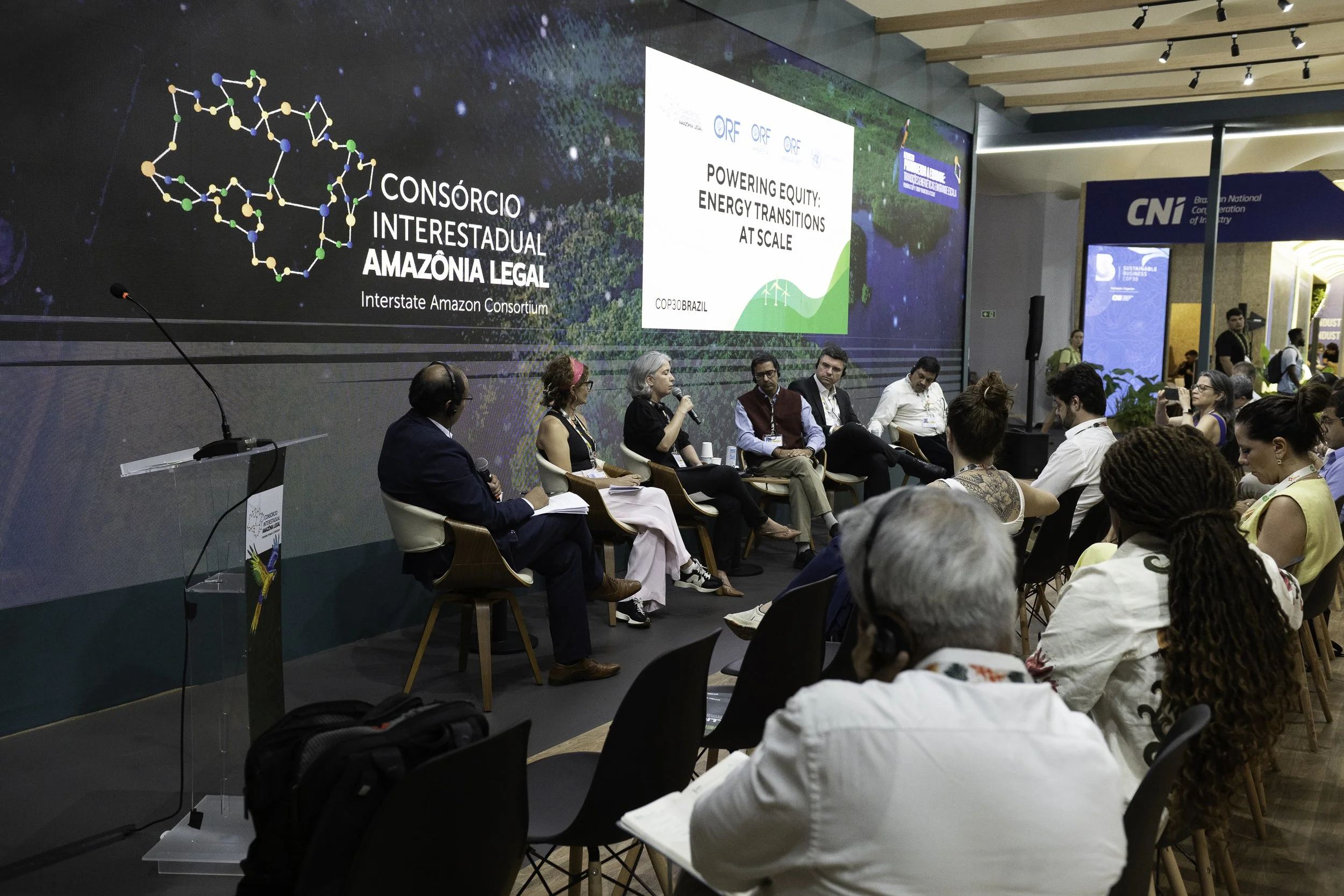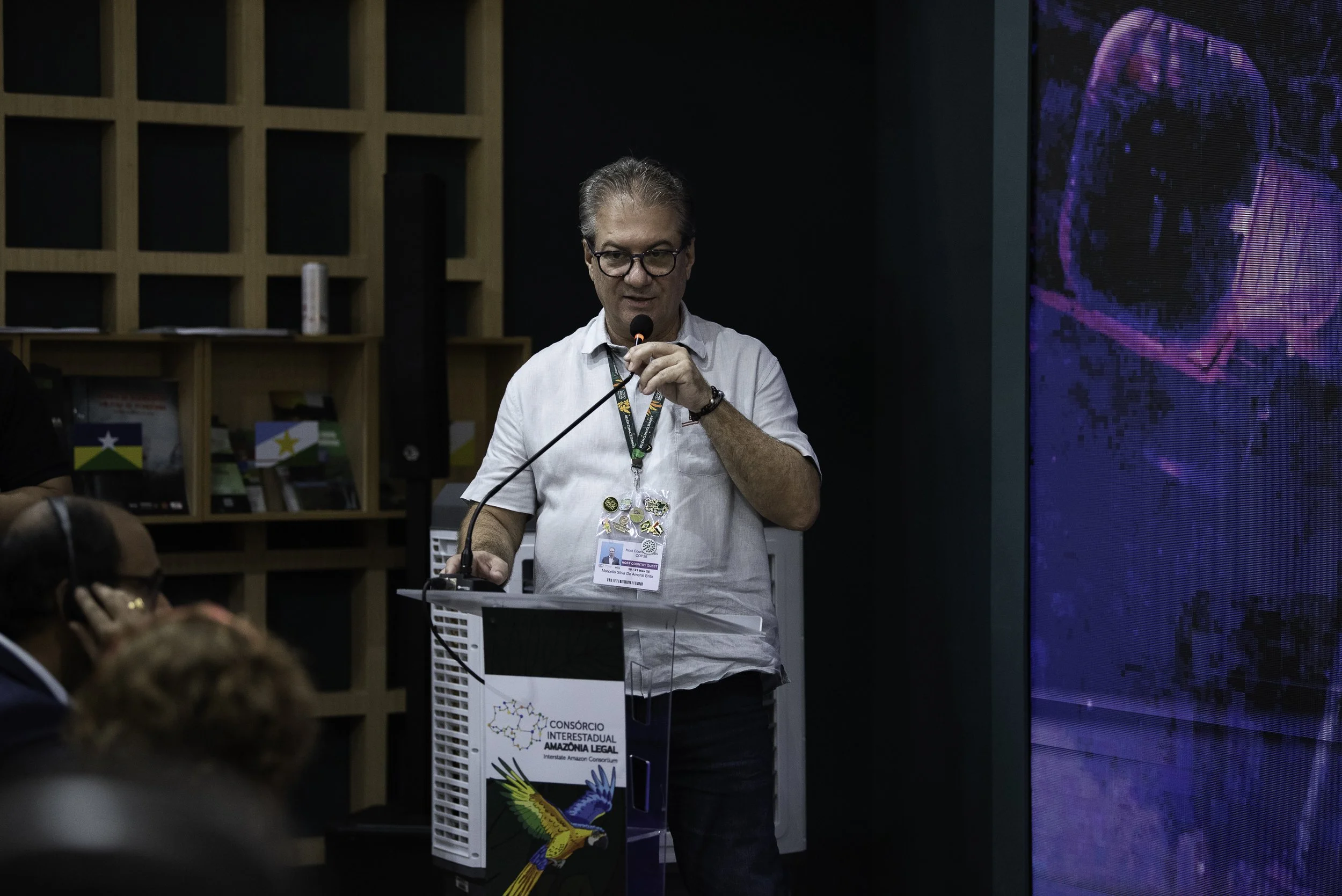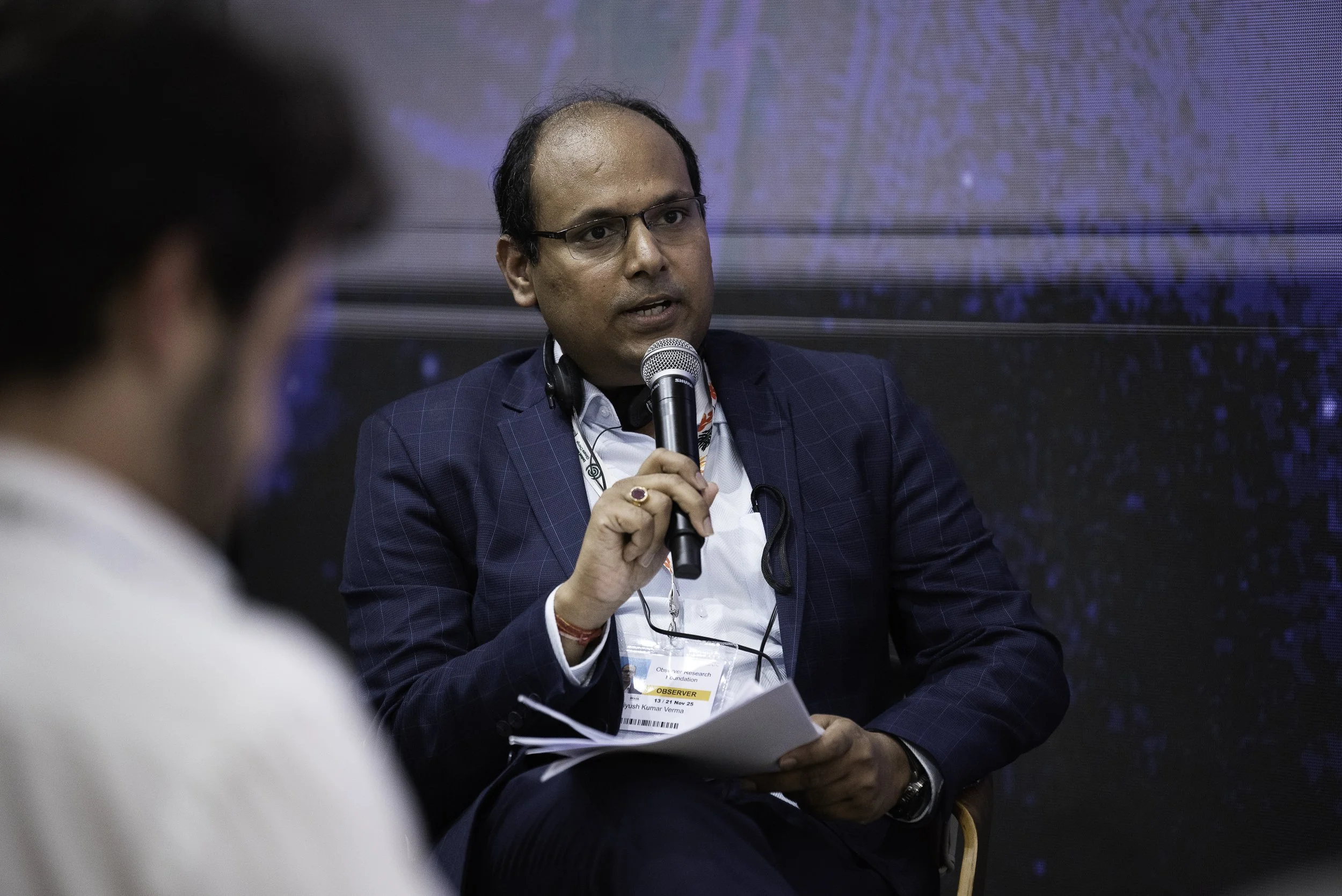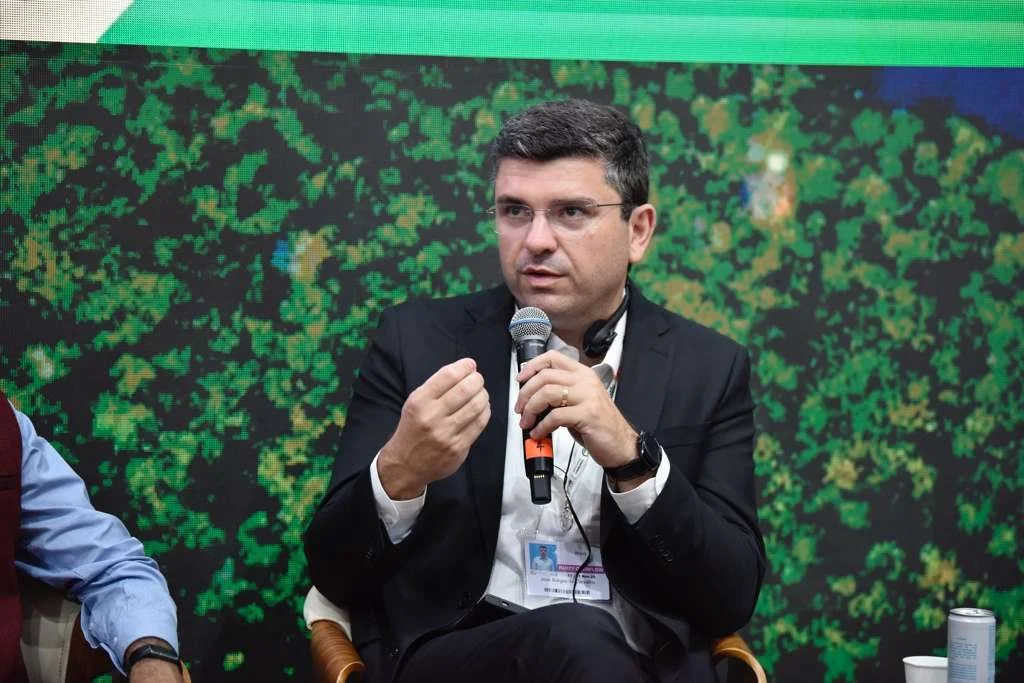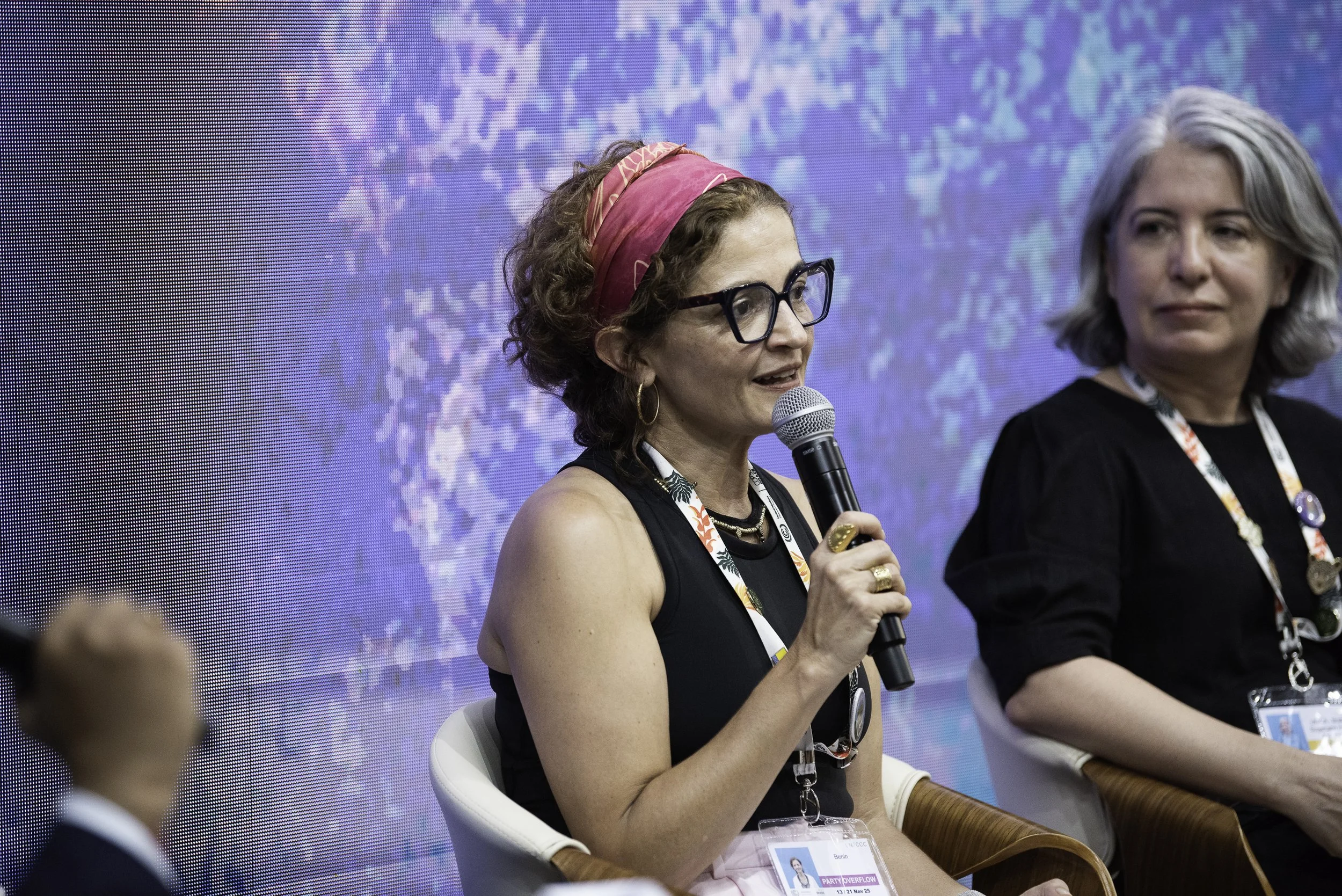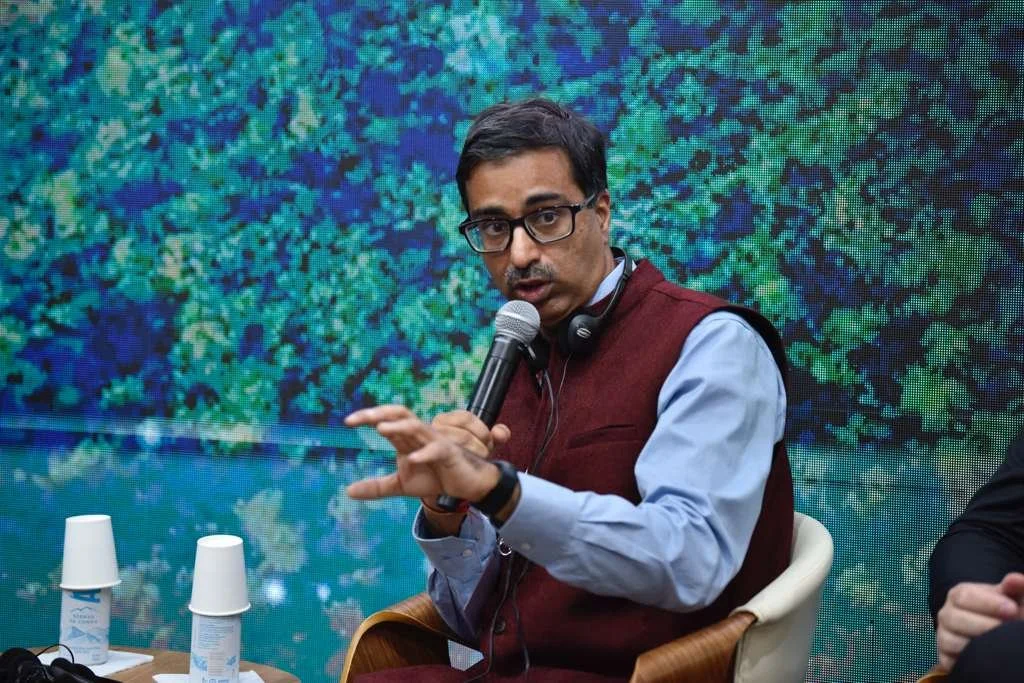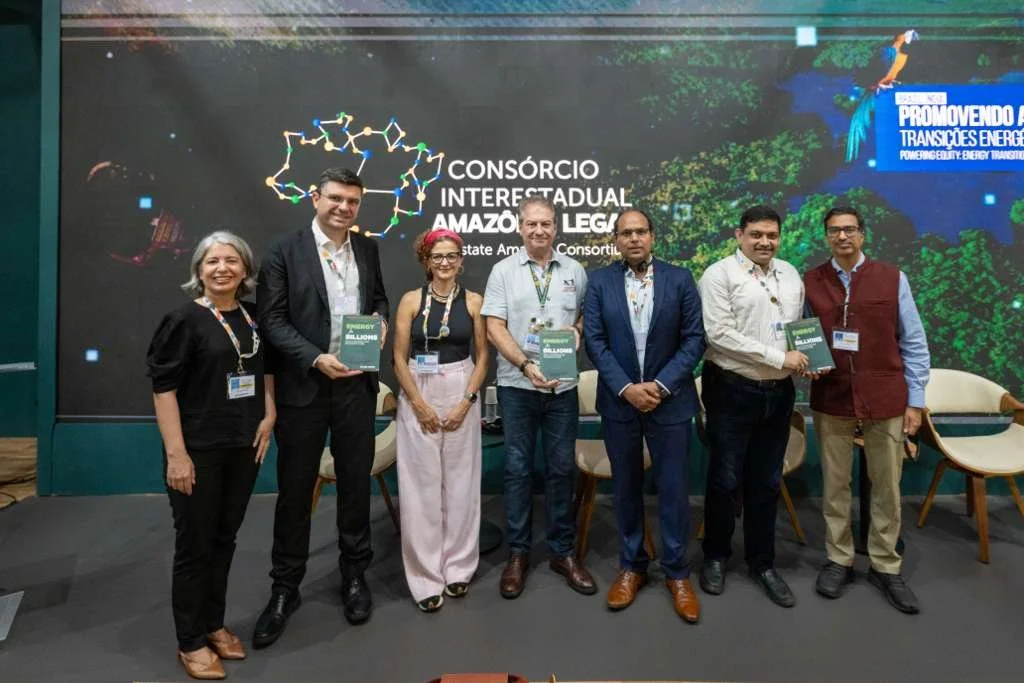ORF America’s presence at COP30 in Belém underscored its growing role in shaping global conversations on climate, technology, and equitable transitions. Across a series of high-level dialogues and partner-led sessions, the team convened government leaders, industry pioneers, researchers, and civil-society voices to unpack some of the most urgent questions facing the world today — from decarbonizing heavy industry to governing artificial intelligence and strengthening energy security for the Global South. Together, these engagements reflected ORF America’s commitment to bridging ideas and action, advancing collaborative solutions, and elevating perspectives that matter for the decade ahead.
Reimagining Heavy Industry: Decarbonization and Growth in a Changing Climate
Moderated by Senior Fellow Piyush Verma, this session focused on decarbonizing steel, cement, and other hard-to-abate sectors while sustaining competitiveness and creating quality jobs. Panelists explored how technology, blended finance, and knowledge exchange can accelerate industrial transformation. The session was jointly organized by ORF America, Solutions for Our Climate (SFOC), and ABDIB – Associação Brasileira da Infraestrutura e Indústrias de Base.
Key insights:
Demand matters as much as supply. Scaling green steel, cement, and aluminum requires buyers willing to absorb early premiums, alongside producer clarity and confidence.
Infrastructure is foundational. Renewable energy, hydrogen pipelines, CO₂ transport and storage, and integrated industrial-cluster planning are critical enablers for scalable decarbonization.
Global cooperation is essential. Capital-intensive technologies such as green hydrogen and CCUS require international collaboration and blended finance to reach a viable scale.
Structured multi-stakeholder dialogue is indispensable. Aligning miners, manufacturers, technology providers, financiers, and buyers is essential to develop practical, coordinated roadmaps that can drive industrial decarbonization at scale.

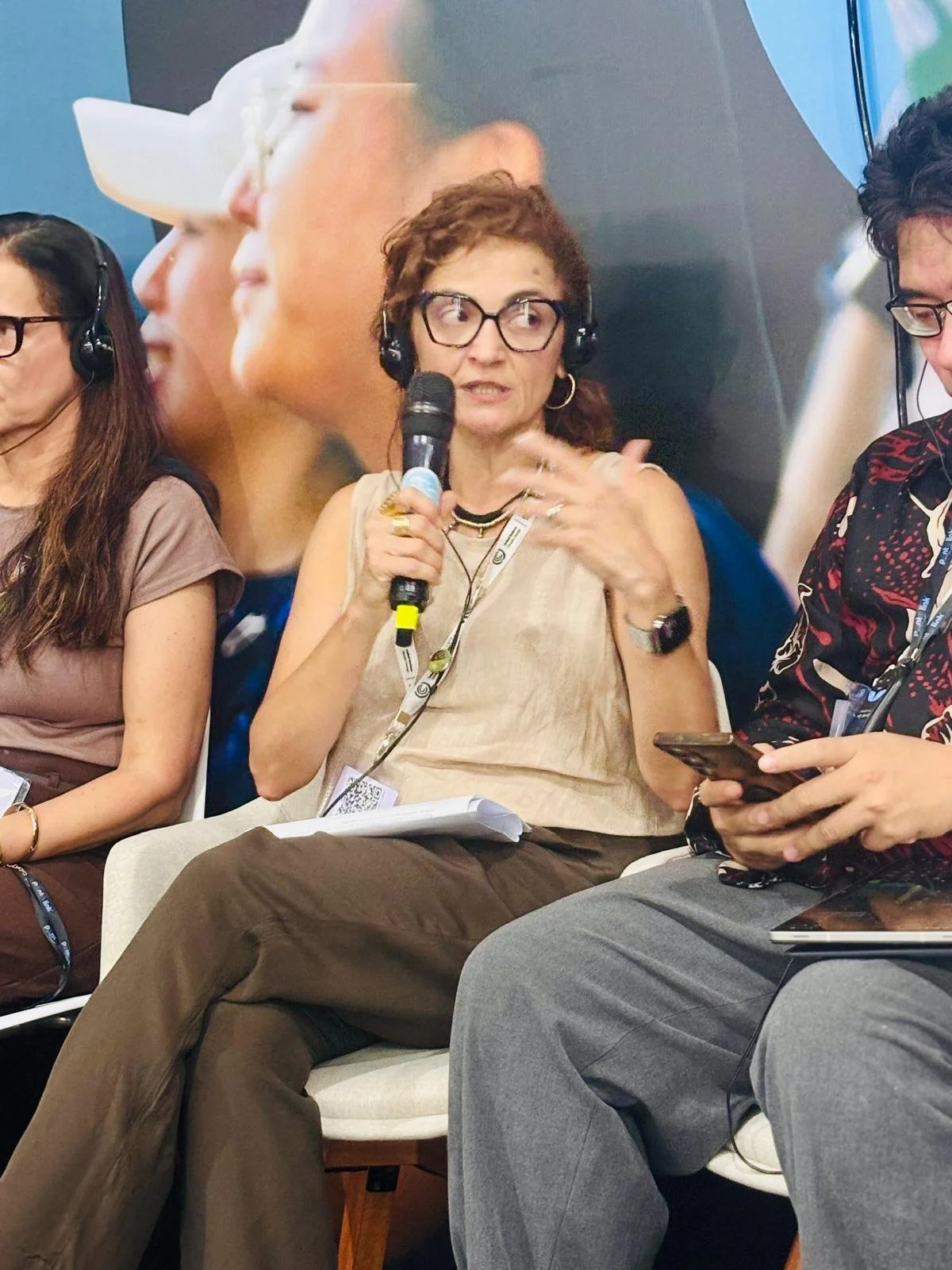
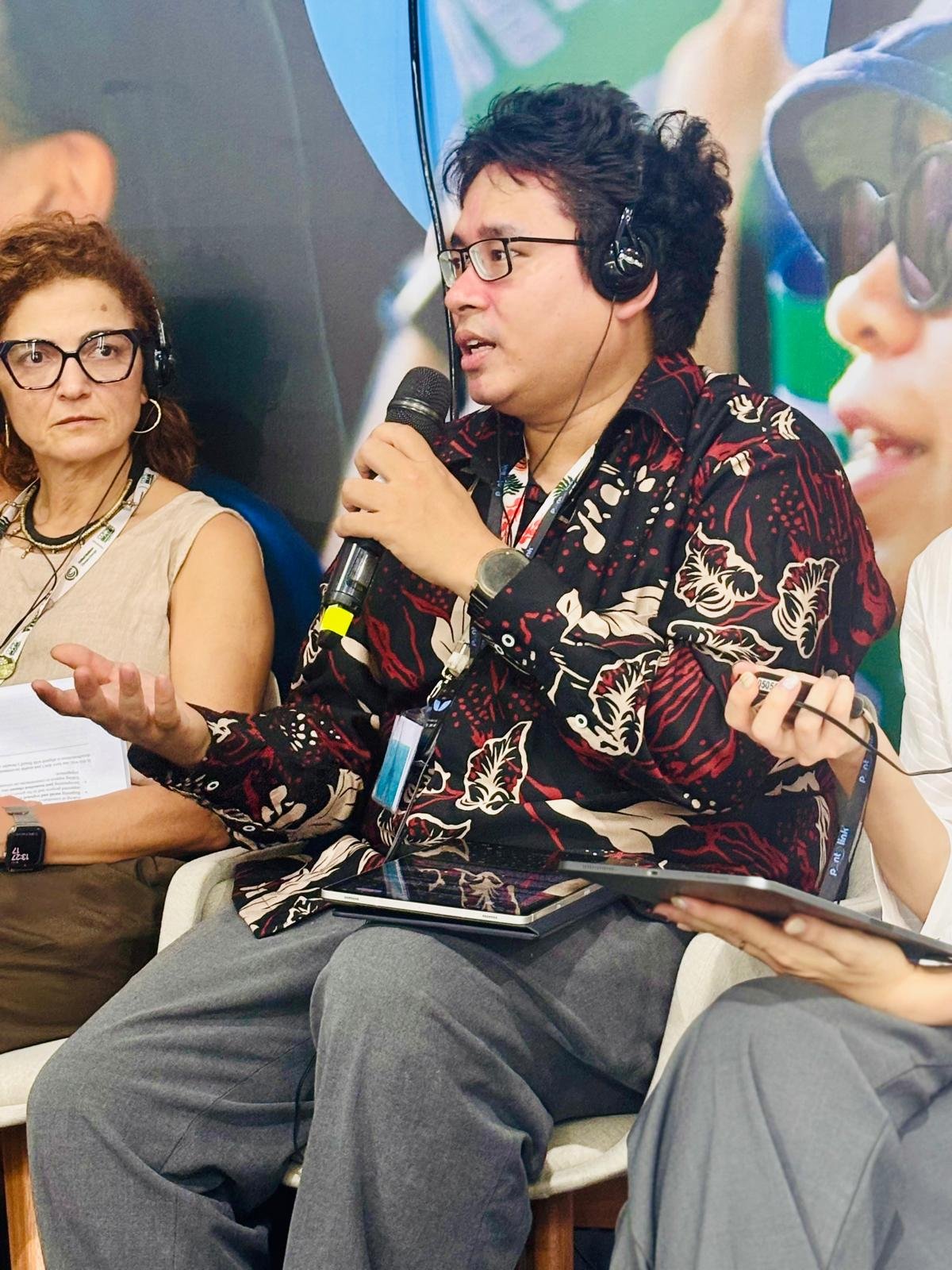
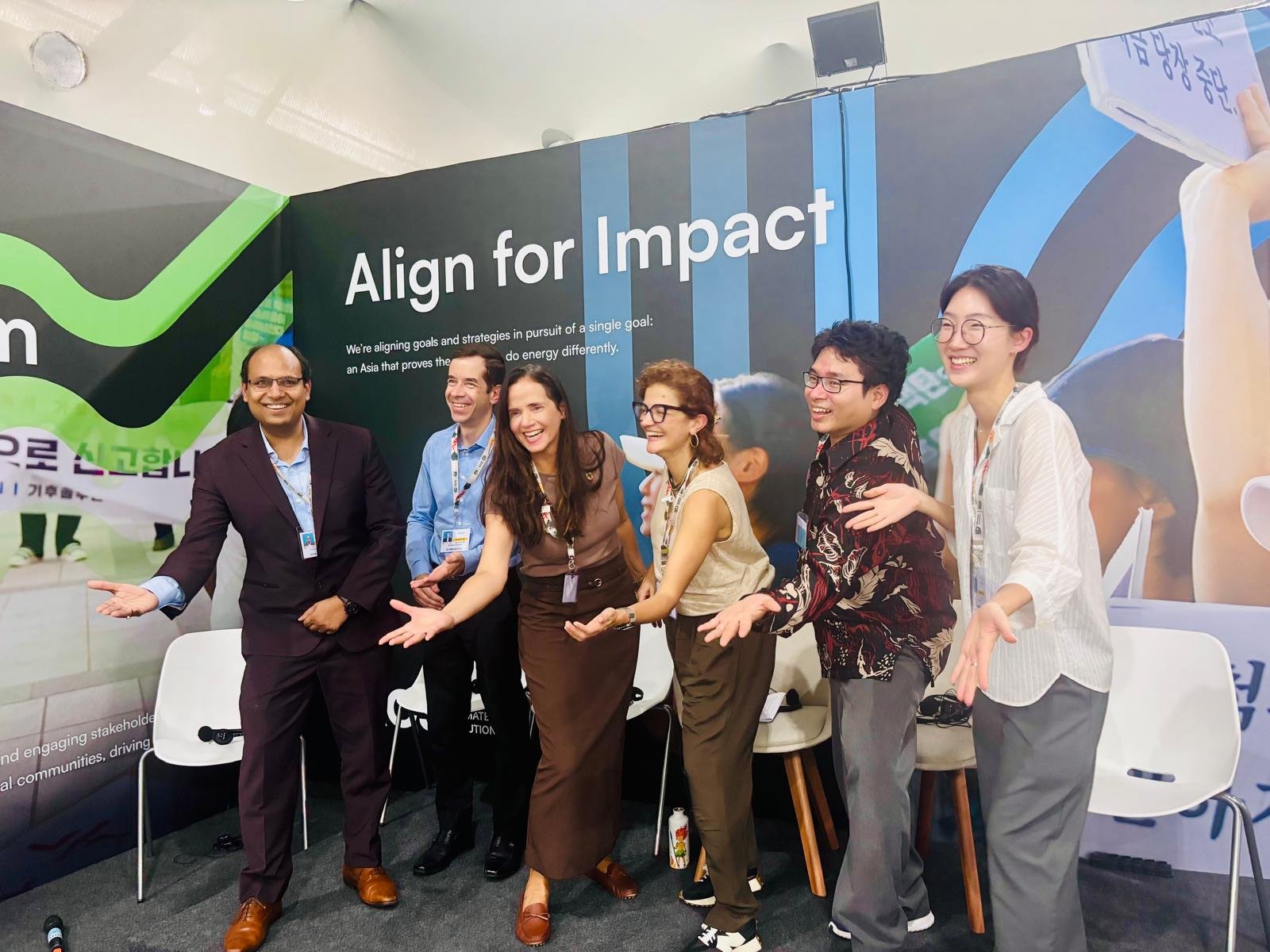
The AI–Energy–Climate Nexus: Innovation for Resilience and Competitiveness
This session explored how artificial intelligence can accelerate clean energy transitions while upholding principles of ethics, equity, and resilience. Moderated by Senior Fellow Piyush Verma and hosted in partnership with the United Nations in India, it underscored that AI holds significant potential for advancing energy and climate action, but only if governance frameworks, ethical safeguards, and equity considerations evolve in step with technological innovation.
Key insights:
Ethics must anchor deployment. AI’s speed and scale mean little without fairness, transparency, and safeguards that protect public trust and prevent harm.
AI must enhance — not erode — social and biodiversity outcomes. Beyond emissions, AI must support community wellbeing, sustainable land use, and biodiversity protection as core metrics of success.
Opportunity must not deepen inequality. AI can transform energy systems, but its benefits must reach workers, consumers, and vulnerable communities — not reinforce existing technological divides.
International frameworks and safeguards are essential. As AI becomes embedded in grids and climate infrastructure, coordinated global rules are needed to ensure security, reliability, and responsible use.
IP regimes must evolve with the technology. Clear, modern rules on data rights and ownership are essential for cross-border innovation and meaningful Global South participation.
AI for the public good should be built on open platforms. Open, interoperable architectures can democratize access, support global climate cooperation, and allow countries to adapt and scale solutions.
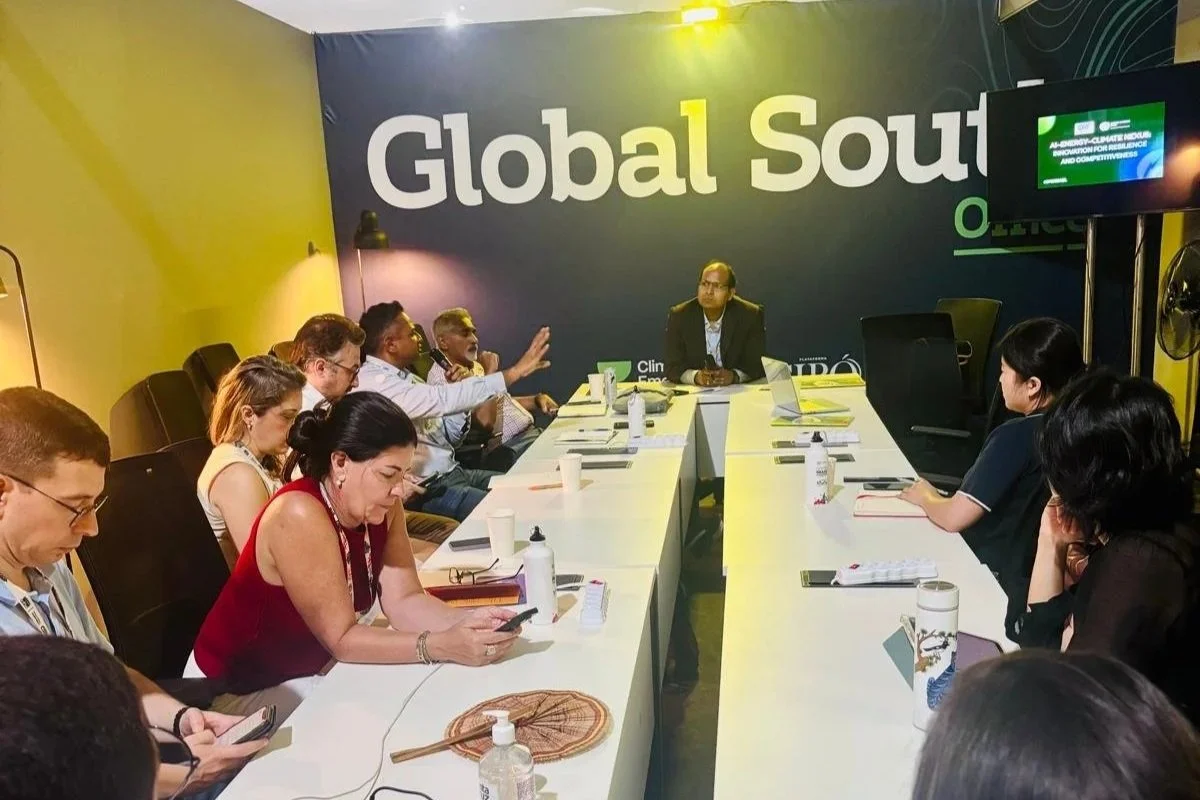
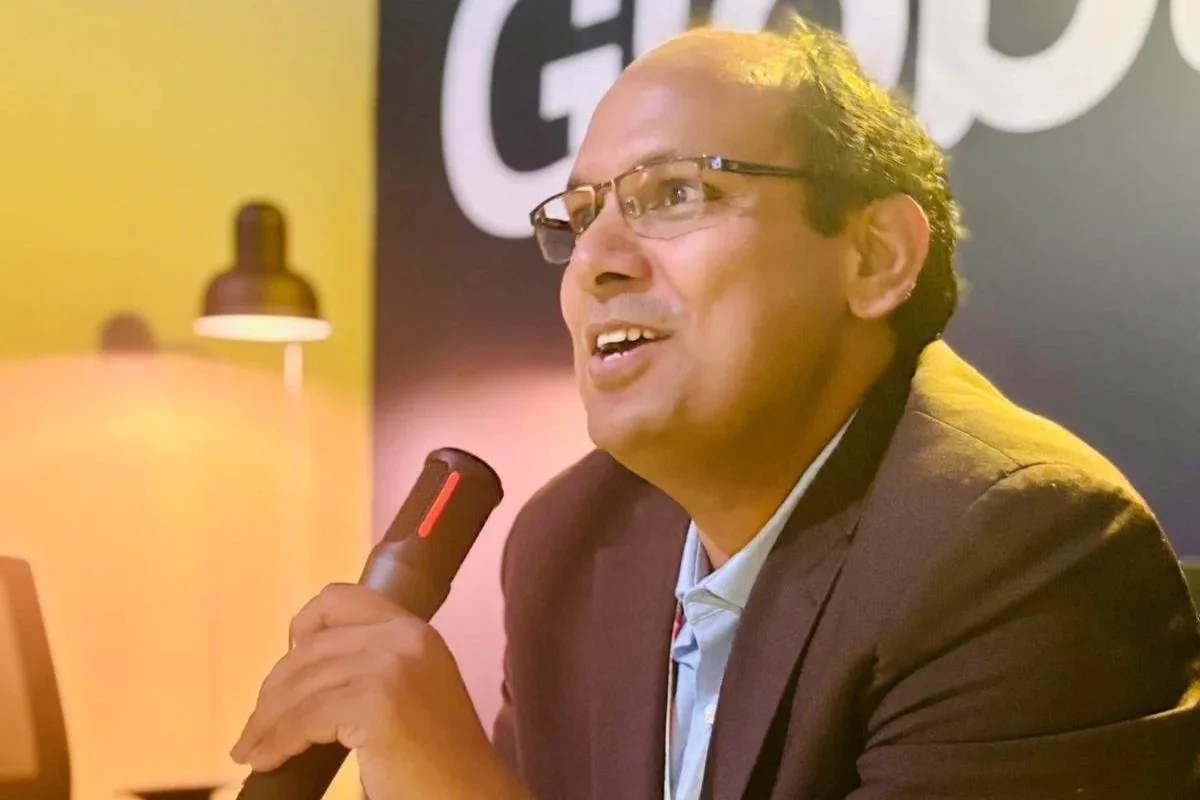


Energy for Billions Book Launch & Powering Equity in Global Energy Transitions
Senior Fellow Piyush Verma’s book Energy for Billions was launched by Marcello Brito, Special Envoy to COP30 for Amazon Subnational Governments and Executive Secretary of the Brazilian Amazon Consortium. The event underscored a central message: truly inclusive energy transitions must place people, dignity, and opportunity at the heart of policy and practice.
The launch was followed by the panel discussion, Powering Equity: Energy Transitions at Scale, which explored how India and Brazil are leading fair and scalable energy transitions. Jointly organized by ORF America, the Observer Research Foundation, ORF Middle East, Consórcio Interestadual Amazônia Legal and United Nations in India, the session emphasized that collaboration, innovation, and cross-sectoral partnerships are essential for promoting equity and large-scale climate action.
Key insights:
Energy transitions must be people-first. Scaling clean energy is not just about technology; it is about dignity, opportunity, and ensuring no community is left behind.
Emerging economies are defining the next era of climate action. India, Brazil, and other rising economies are demonstrating that economic growth and decarbonization can be pursued simultaneously.
Equity is indispensable. A truly global energy transition requires finance, technology, and skills to flow to the regions that need them most.
The workforce of the future is being built today. In solar, hydrogen, grids, AI, and beyond, the Global South has the potential to become the world’s clean energy talent hub with the right investments.
South–South collaboration is a powerful multiplier. From forests to renewables to digital innovation, cross-regional partnerships are shaping a new model of climate leadership centered on shared solutions.
